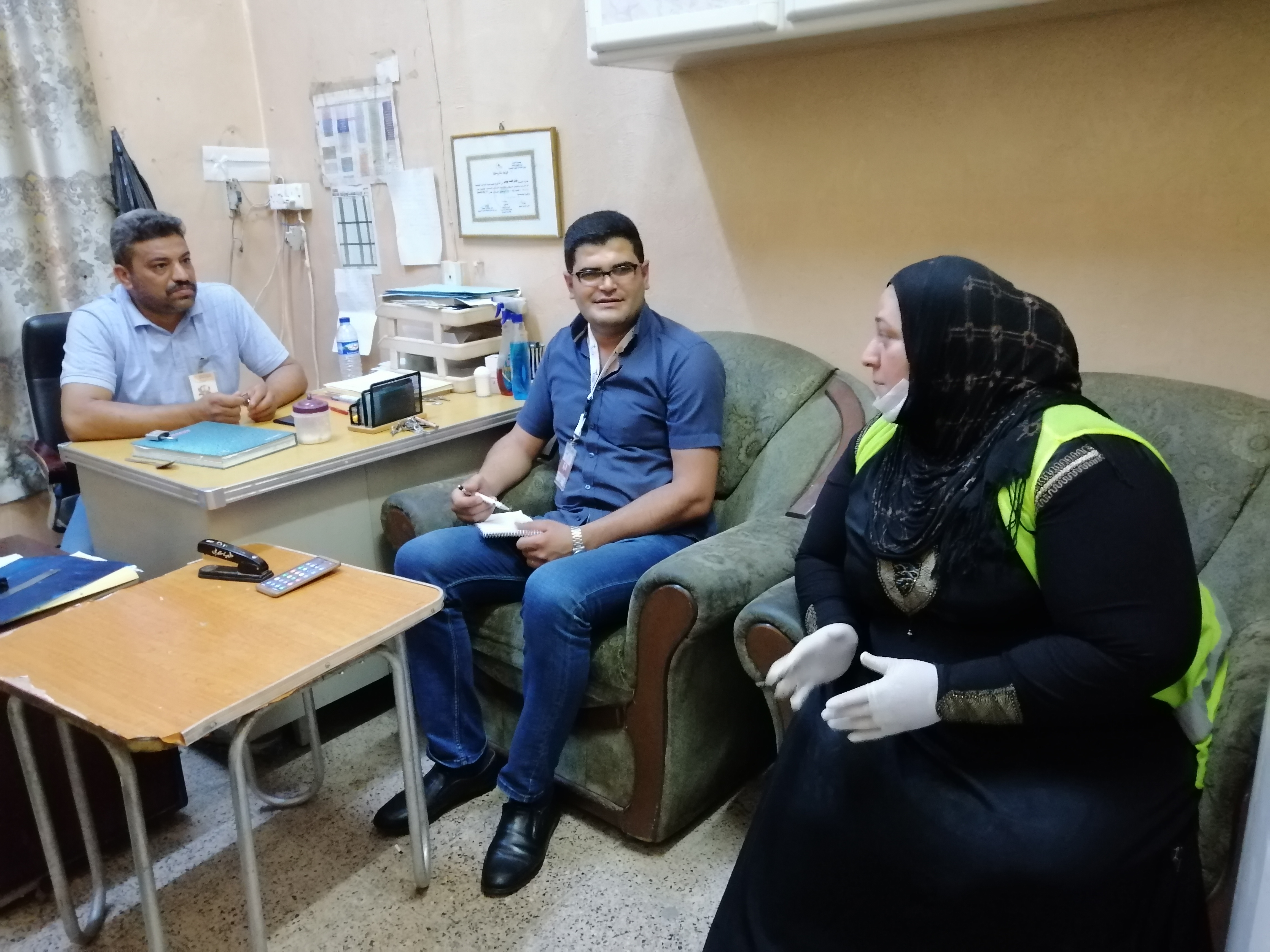How cash-for-work helped Hala stand on her own feet after her husband’s death
Date:

Hala lived a long love story with Fares. Together, they had three daughters who were the center of their attention and happiness. Fares worked as a carpenter and spared no effort in creating a happy life for his family in Mosul, Iraq.
But this came to an end in 2014 when the Islamic State of Iraq and the Levant (ISIL) took over the city. Life under the extremist group’s rule was replete with violence and brutal repression and Fares could no longer find work. The ordeal of Mosul’s residents lasted three years, until the city was liberated in 2017 by the Iraqi Army. Tragically, during that battle Hala’s house was bombed and Fares was killed.
Losing her companion and the family’s sole breadwinner was more than Hala could bear. She felt that her life became meaningless and she sank into depression. The death of their father and depression of their mother also took a heavy toll on the wellbeing of their three young daughters. A benefactor donated money for the reconstruction of their home, but Hala was still depressed.
Worried, neighbors who had been following her deteriorating situation informed a team from the Tajdid Iraq Foundation for Economic Development (Tajdid) about Hala and asked for their support.
Tajdid has been working in partnership with UN Women to build the resilience of Syrian refugees and host communities under the regional programme “Strengthening the Resilience of Syrian Women and Girls and Host Communities in Iraq, Jordan and Turkey.” The programme is funded by the EU Regional Trust Fund in Response to the Syrian Crisis (the EU “Madad” Fund). As part of this project, Tajdid offers legal, psychological and livelihood support to vulnerable refugee, host and displaced women to increase their resilience to conflict, displacement and other crises.
After speaking with her, the Tadjid team provided Hala with psychological support to help her rebuild her self-confidence. Most importantly, the team informed her of work opportunities, which gave her hope of making a living to support her family. Gradually, her will to live returned to her, and she was once more filled with energy and enthusiasm.
When she felt better and ready to work, Hala joined Tajdid’s cash-for-work programme, starting at a hospital in Mosul where Tajdid provides caretakers. The programme allows beneficiaries to work for a daily wage for a period of 60 days to gain experience and possibly future employment at the establishment. The allocation of cash-for-work positions depends on the women’s qualifications and previous work experience.
Hala, one of 240 women who have benefited from Tajdid’s cash-for-work programme over the past two years, has been recognized by the hospital administration for her enthusiasm and remarkable energy at work.
At the end of her 60-day contract, the hospital hired Hala and she became a permanent staff member. Thanks to this job, Hala can provide for herself and her family, and has been able to overcome many challenges.
"I will not forget what Tajdid did for me. It helped me face the hardships of life and find work to support my daughters." says Hala.